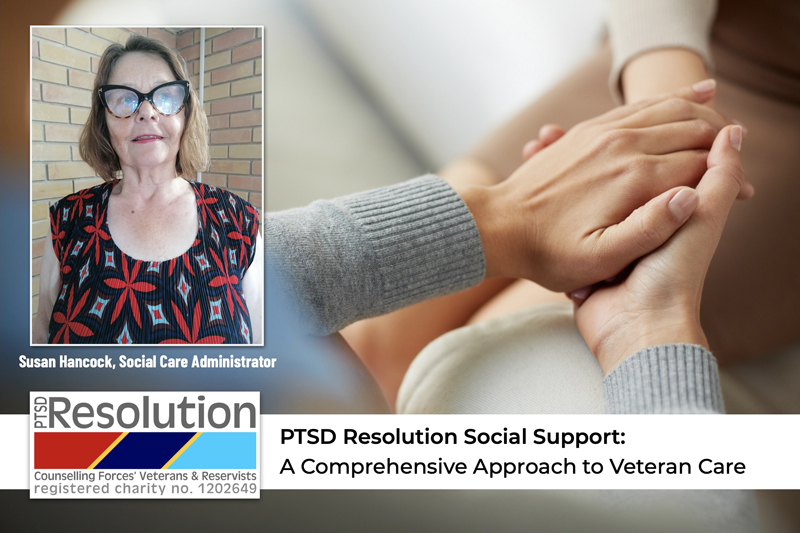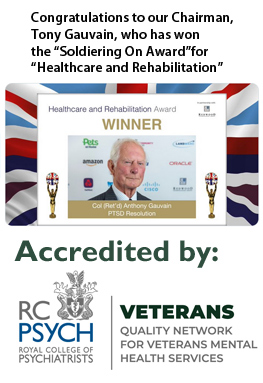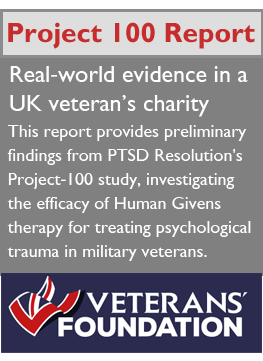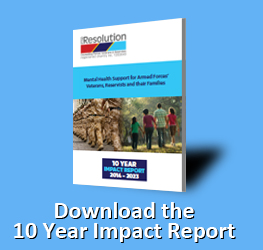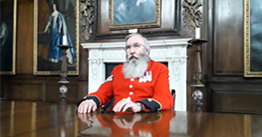UK Veterans' mental health charity PTSD Resolution is increasingly recognised for
its free, prompt and effective trauma therapy - but the organisation has another
invaluable service. Alongside delivering Human Givens Therapy, the charity provides
essential social support and aftercare to its Veteran clients - acknowledging a critical,
and often overlooked, aspect of the journey to recovery.
Founded in 2009, registered charity PTSD Resolution is accredited by the Royal
College of Psychiatrists to the Quality Network for Veterans Mental Health Services
(QNVMHS). Therapy is free for UK Veterans, Reservists and family members - and
delivered via a UK-wide network of 200 therapists. Treatment is available in-person,
online and by phone - and sessions are offered without delay, often culminating in
successful outcomes within an average of seven sessions.
With over 4,000 referrals, PTSD Resolution has long understood the multiple and intersecting challenges that Veterans face upon their return to civilian life.
Recognising that support must extend beyond the therapy room, the charity initiated a programme designed to tackle the practical barriers to reintegration. Established in 2015, this adjacent support service has been a lifeline for those coping with isolation, financial difficulties - and the intricacies of navigating bureaucracy and welfare systems.
Bolstered by an NHS grant in 2020, the programme has continued to evolve and today facilitates sustained, personalised interactions with beneficiaries. By offering advice on housing, debt, legal problems, form-filling and much more, the charity now provides a more far-reaching service - working towards long term stability and wellbeing for its clients.
Susan Hancock
As Social Care Administrator, Susan Hancock is central to the day-to-day operations of PTSD Resolution Social Support. Susan has a deep-seated passion for problem-solving and a commitment to delivering solutions that alleviate the stress of the Veterans and families she works with:
"Successfully researching and gaining a solution to the client's query" is the most satisfying aspect of her work, Susan says - alongside the palpable "sense of relief" that comes when a Veteran's concern is resolved. |
One memorable case involved a Veteran who, due to substandard hostel conditions,
was unable to regularly see his children. "He could not have them visit," Susan
recalls, "as some of the other residents were openly taking drugs." Eventually, "after
a good deal of pressure from PTSD Resolution, the Veteran was awarded a one-
bedroom flat." It was a hard-won victory that exemplifies a commitment to client
welfare.
"The Veteran was thrilled that he could have his children come to visit."
While Susan cites her PTSD Resolution colleagues as another reason she loves her
job - "A group of staff who have empathy for Veterans in need and leave no stone
unturned in seeking a solution to a problem" - she admits the work is not without its
challenges. "Many people come to Social Support when at the end of their tether,"
she explains, "with issues that, to them, appear to be impossible to resolve."
"People must be reassured that they have done the right thing in contacting PTSD
Resolution." Whatever the problem may be, Susan says, "the issue they are going
through is very important to us and, hopefully, can be solved."
When asked what she believes our Veterans need most, Susan is clear: housing.
"Definitely first on the list is that Veterans need better access to housing," she says.
"Each council should have an Armed Forces Champion," - someone appointed to
give Veterans better insight into the workings of the council. Such a role could serve
as a vital conduit between Veterans and local services, she says, enhancing the
support system for those in need.
Functioning daily as an Armed Forces Champion in her own right, Susan's
dedication reflects the charity's ethos of empathy and perseverance - with each case
given due attention and every possible avenue for resolution explored.
PTSD Resolution Social Support is not a separate endeavour - but is interlaced with
the therapeutic care for which the charity is best known, forming a holistic approach
to recovery and reintegration. Susan Hancock and her colleagues at the charity are
at the vanguard of this approach - working to ensure that every Veteran, Reservist
and family member has the opportunity to stand on firm ground once more. |
